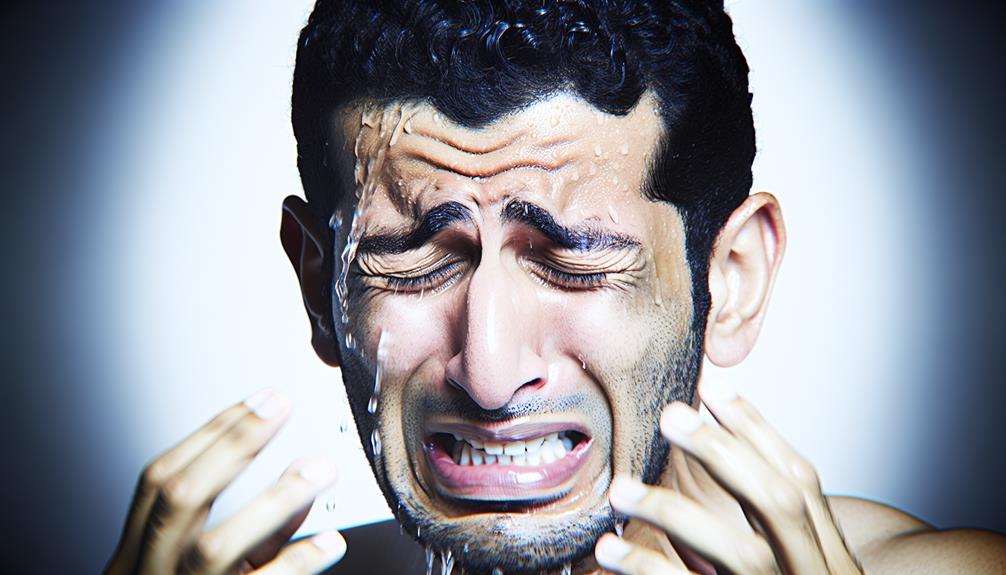Imagine waking up after a long night of heavy drinking, only to be greeted by a pounding headache, nausea, and a seemingly insatiable thirst. You may have experienced this scenario yourself or know someone who has. This is just one example of the toll that alcohol can take on the body and mind. But what happens when you decide that enough is enough and you want to break free from the grips of alcohol addiction? How can alcohol detox treatment help you on your journey to recovery? In this discussion, we will explore the importance of alcohol detox, the process of detoxification, common symptoms experienced during detox, and the crucial role of medical support and aftercare in achieving lasting sobriety. So, let's dive in and discover the path to a healthier, alcohol-free life.
The Importance of Alcohol Detox

When it comes to overcoming alcohol addiction, undergoing alcohol detox is of utmost importance. Detoxification is the first step towards a healthier, alcohol-free life. It is crucial in removing alcohol toxins from your body and allowing your system to reset. The long-term effects of alcohol detox are incredibly beneficial. By eliminating alcohol from your body, you can experience improved overall health, reduced risk of liver damage, and better cognitive function.
However, alcohol detox is not just a physical process. It also requires psychological support. During detox, you may experience withdrawal symptoms, such as anxiety, depression, and cravings. This is where psychological support becomes crucial. Having professionals who understand addiction and can provide emotional guidance can make a significant difference in your recovery journey.
Psychological support during alcohol detox helps you navigate the emotional challenges that arise. It allows you to address the underlying issues that may have led to your addiction in the first place. Through therapy, counseling, and support groups, you can develop healthy coping mechanisms, build resilience, and gain a better understanding of yourself.
The Process of Alcohol Detoxification
As you embark on your journey towards alcohol recovery, understanding the process of alcohol detoxification is essential for your success. Alcohol withdrawal can be a challenging experience, both physically and mentally. Detoxification is the first step in overcoming alcohol addiction, and it involves removing alcohol from your system while managing withdrawal symptoms.
The detoxification process typically begins within a few hours of your last drink. During this time, your body starts to rid itself of alcohol and begins to adjust to functioning without it. It is during this period that withdrawal symptoms may arise, such as tremors, nausea, anxiety, and insomnia. These symptoms can be distressing, but it's important to remember that they are temporary and part of the healing process.
Medical professionals often recommend seeking medical supervision during detoxification to ensure your safety and provide the necessary support. They may administer medications to help alleviate withdrawal symptoms and monitor your progress closely. Detoxification can last anywhere from a few days to a week, depending on the severity of your alcohol dependency.
Common Symptoms During Alcohol Detox

During alcohol detox, it is common to experience a range of symptoms as your body adjusts to the absence of alcohol. This phase, known as alcohol withdrawal, is an integral part of the detoxification process. Understanding the symptoms you may encounter can help you navigate this challenging journey with confidence and support.
One of the most common symptoms of alcohol detox is anxiety. As your body becomes accustomed to functioning without alcohol, you may experience feelings of restlessness, nervousness, and a sense of unease. It's important to remember that these feelings are temporary and a normal part of the detox process.
Another common symptom is insomnia. Your body has become accustomed to the sedative effects of alcohol, and without it, you may struggle to fall asleep or stay asleep throughout the night. This can be frustrating, but it's crucial to practice good sleep hygiene and establish a consistent sleep routine to facilitate the healing process.
Headaches and nausea are also common symptoms during alcohol detox. These can be caused by the body's adjustment to the absence of alcohol, as well as the body's attempt to eliminate toxins. Staying hydrated and eating small, nutritious meals can help alleviate these symptoms.
Lastly, you may experience mood swings and irritability during alcohol detox. The chemical imbalances in your brain caused by alcohol consumption can take time to stabilize. Remember to be patient with yourself and seek support from loved ones or professionals who can help you through this challenging period.
Medical Support and Supervision in Detox Treatment
To ensure your safety and well-being during alcohol detox, it is crucial to have access to medical support and supervision. Detoxing from alcohol can be a challenging process, and having the right medical intervention and withdrawal management is essential. Here are some reasons why medical support and supervision are so important:
- Monitoring your vital signs: Medical professionals can closely monitor your heart rate, blood pressure, and temperature to ensure your body is responding well to the detox process.
- Managing withdrawal symptoms: Withdrawal symptoms can range from mild discomfort to severe complications. With medical support, healthcare providers can help alleviate these symptoms and keep you as comfortable as possible.
- Addressing complications: In some cases, alcohol detox can lead to medical complications such as seizures or delirium tremens. Having medical professionals on hand ensures that any potential complications are addressed promptly and effectively.
- Providing emotional support: Alcohol detox can be emotionally challenging, and having medical professionals who understand the process can provide the necessary support and guidance throughout your journey.
Aftercare and Continued Support in Recovery

Continued support and aftercare are essential components of your recovery journey, providing the necessary guidance and resources to maintain sobriety and prevent relapse. After completing alcohol detox treatment, it is crucial to have a plan in place to continue your progress and ensure long-term success.
One important aspect of aftercare is the implementation of relapse prevention strategies. These strategies are designed to help you identify triggers, cope with cravings, and develop healthy coping mechanisms. By understanding your personal triggers and learning effective techniques to manage them, you can significantly reduce the risk of relapse.
Building a sober support network is another vital part of your aftercare plan. Surrounding yourself with individuals who understand your journey and offer encouragement and understanding can greatly enhance your chances of staying sober. This network may include friends, family members, support groups, or a sponsor. Regularly attending support group meetings, such as Alcoholics Anonymous, can provide you with a sense of community and accountability.
Frequently Asked Questions
What Are the Long-Term Effects of Alcohol Detoxification?
Long term effects of alcohol detoxification can include improved physical and mental health, reduced risk of relapse, and better overall quality of life. However, it is important to be aware of potential complications and risks that may arise during the process.
Are There Any Alternative Treatments for Alcohol Detoxification?
If you're looking for alternative treatments for alcohol detoxification, there are options available such as alternative therapies and herbal remedies. These can be helpful in supporting your detox journey, but it's important to consult with a healthcare professional for guidance.
How Long Does the Alcohol Detoxification Process Typically Last?
Alcohol detoxification duration can vary depending on individual factors, but typically lasts about a week. During this time, you may experience alcohol withdrawal symptoms. Remember, seeking professional help is important for a safe and successful detox process.
Can I Detox From Alcohol at Home Without Medical Supervision?
Yes, you can detox from alcohol at home without medical supervision, but it's important to prioritize your safety. Consult with a healthcare professional to discuss the best approach and explore home remedies that can support your detoxification journey.
What Are Some Potential Complications or Risks Associated With Alcohol Detoxification?
When detoxifying from alcohol, it's important to be aware of potential complications and risks. It's best to seek medical supervision to ensure your safety and well-being throughout the process.



